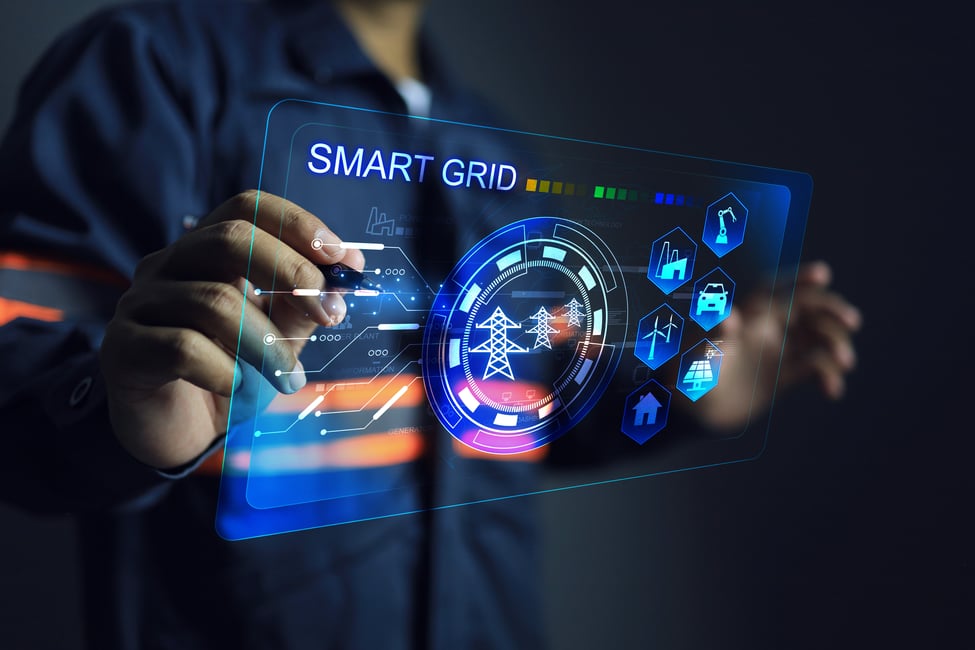AI is transforming system operations and decision-making. Machine learning and digital twins are improving efficiency, reducing costs, and increasing reliability, shaping new approaches to planning, operations, and customer engagement.

As a result, AI growth is having a profound impact on data centers, increasing demand for flexible and efficient infrastructure. As workloads grow more complex, operators are prioritizing scalable architecture and advanced cooling systems. Sustainability goals are also driving investments in renewable energy integration and energy-efficient hardware.
- According to the Department of Energy, data centers accounted for about 4.4% of total U.S. electricity in 2023, up from 58 TWh in 2014 to 176 TWh in 2023. By 2028, this is expected to rise to 6.7–12%, or between 325 and 580 TWh.
- According to Berkley Labs, U.S. data center power demand more than doubled between 2017 and 2023, driven primarily by AI compute workloads.
- The International Energy Agency (IEA) projects data center electricity demand will exceed 945 TWh by 2030, roughly the equivalent of Japan’s entire electricity use today.
Operations and maintenance must evolve with the energy transition. AI enables companies to shift from reactive to predictive systems. Digital twins and machine learning diagnostics allow asset owners to anticipate issues, resulting in fewer outages, longer asset life, and improved returns.
AI also coordinates thousands of distributed resources, such as solar panels, batteries, and electric vehicles, enabling real-time grid support. Real-time analytics help households actively participate in the grid, creating opportunities for new services, greater resilience, and stronger consumer engagement. Emerging technologies strategies are focusing on how intelligent forecasting and automated control systems add value and the role of VPPs in grid reliability and consumer participation.
The energy industry is facing rapid change with the growth of distributed energy, electrification, and digital solutions. There is a fundamental shift happening in the industry that is driving the future of energy and it is taking place now.
Interested in hearing more on this topic area?
Join us at this year’s LG NOVA InnoSummit to be a part of the discussion on the future of energy and the opportunity that the industry is facing to create transformative change to fuel the next generation of innovation.
We’re inviting industry leaders, innovators, utilities, and technology companies to come together to explore innovations in clean energy, artificial intelligence, automation, and distributed resource integration. By participating, attendees will gain insights into the technologies and strategies driving the clean energy transition and explore what is possible, not just what is happening today. The discussions will focus on both the challenges and the opportunities that lie ahead.
The CleanTech sessions at InnoSummit are designed to encourage interaction and future-forward thinking through innovation, collaboration, and networking. Attendees will hear from experts and join in discussions. Formats include panels, roundtables, and Q&A sessions. These settings provide participants with an opportunity to ask questions, share challenges, and explore solutions together.
What you’ll learn:
- Data center innovations: Uncover how sustainable, AI-ready data centers are meeting higher energy demand with advanced strategies.
- AI and automation in energy: Learn how AI and predictive models elevate energy planning and operations.
- Distributed energy and smart homes: Discover how solar, EVs, and storage blend with AI to boost energy assets’ intelligence.
- Predictive O&M: Understand how AI tools and digital twins detect faults early and enable data-driven maintenance strategies.
- Virtual Power Plants (VPPs): Explore how AI-enabled coordination of distributed assets strengthens grid resilience and unlocks new value.
Join us, request your invite today.

